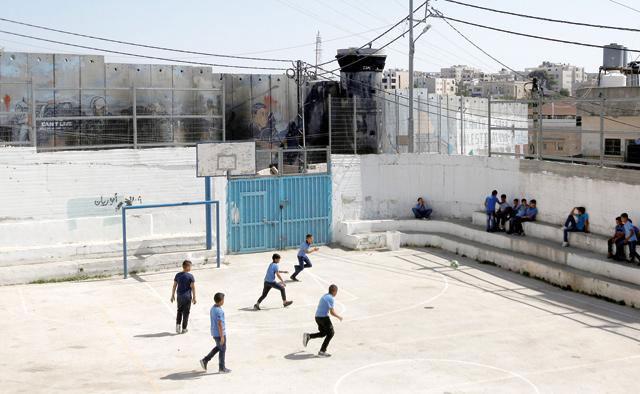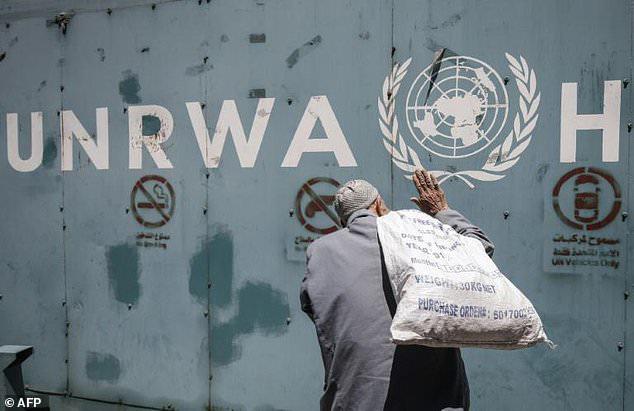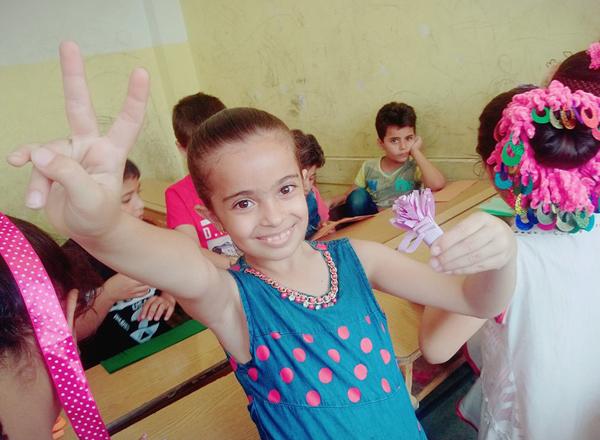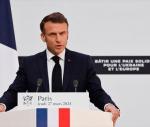You are here
‘UNRWA still faces $1.2 billion funding shortfall for 2019’
By Maram Kayed - Jan 26,2019 - Last updated at Jan 28,2019

Palestinian students play football at an UNRWA-run school in Aida refugee camp in Bethlehem, in the occupied West Bank after the US withdrew funding from UNRWA last year. Despite an outpouring of donations from the international community and private donors, the organisation recently said it faces a $1.2 billion funding shortfall for 2019 (Reuters file photo)
AMMAN — UNRWA will need $1.2 billion to cover its costs for 2019 if it is to continue providing educational, social and health services to 5.4 million Palestinian refugees, according to a report made available to The Jordan Times.
UNRWA’s work covers Palestinian refugees mainly residing in the West Bank, Gaza, Jordan, Lebanon and Syria. In Jordan, over 2.1 million registered Palestine refugees distributed among 10 camps benefit from the agency’s aid, in the form of both services and financial aid.
UNRWA’s financial problems started at the beginning of 2018 when it began the year with an overall budget shortfall of $146 million. The situation was then “severely aggravated”, as stated in the report, by the withdrawal of funding from the largest UNRWA donor — the US, and so the budget shortfall increased to $446 million.
“The agency was left in an unprecedented financial crisis, putting at risk UNRWA operations across all fields,” it added.
Due to what the agency calls “remarkable” additional support from many traditional and emerging donors, and due to the launch of the global #DignityisPriceless fundraising campaign, UNRWA was able to decrease the shortfall to $64 million by late September of 2018.
However, now that the US has not only withdrawn support but stopped funding altogether, this year’s budget needs depict a rocky road ahead for the agency. “It is going to be a challenging year,” UNRWA’s director of operations in Jordan, Roger Davies, told The Jordan Times over the phone.
He noted that in the next few weeks, UNRWA will have a clearer vision of the year ahead, as a conference in Geneva to announce the agency’s needs will be held by the end of January.
Since the US’s decision, several states have sent messages of solidarity and increased financial support, and the agency noted that there has been a very sharp increase in private donations.
The donor community’s support has been “historic”, said UNRWA Commissioner General Pierre Krahenbuhl in late 2018. New contributions from regional neighbours such as Qatar, Saudi Arabia, the UAE and Kuwait, as well as increased support from Germany and a multi-year agreement with the UK, Sweden, Canada and Australia also flooded in after the US withdrawal.
Emerging partnerships with Turkey, India, Indonesia and Malaysia were formed, and some Muslim countries have allocated money from their “zakat” funds (Islamic-dictated charity) to the agency, according to Davies.
However, “despite the increased support, there needs to be a long-term plan to meet the agency’s needs for the future”, said UK Ambassador to Jordan Edward Oakden in past remarks to The Jordan Times.
Related Articles
AMMAN — The international community’s support and the Jordanian efforts have helped UNRWA overcome its financial crisis in 2018, director of
AMMAN — Schools run by the United Nations Relief and Works Agency for Palestine Refugees (UNRWA) will open on time for the upcoming academic
AMMAN — Education Minister Walid Maani said on Thursday that the ministry will bear the costs of textbooks for the schools run by UNRWA in J


















